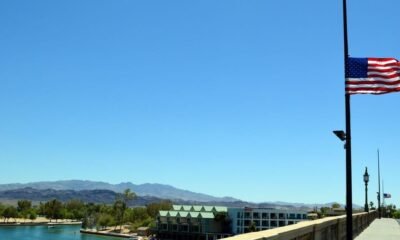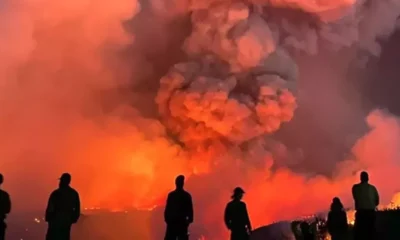arizona
Court Mandates Arizona Agencies to Approve Lawsuits through Public Votes

Arizona’s open meeting laws require public votes for litigation authorization, according to a ruling from the Arizona Court of Appeals. On Tuesday, the court invalidated the City of Flagstaff’s lawsuit against Desert Mountain Energy, determining that the city violated state laws by making litigation decisions in private sessions.
The unanimous decision by the three-judge panel highlighted that public bodies cannot initiate lawsuits during executive sessions, which are not open to public attendance. Presiding Judge Michael Catlett stated clearly in the 13-page opinion, “May public bodies vote behind closed doors to authorize litigation? The answer is no.” This ruling notably affects how various government entities in Arizona must approach litigation decisions.
The case originated from a Flagstaff City Council meeting in December 2020, where council members convened privately for legal advice before voting to sue Desert Mountain Energy over helium mining near the city’s water supply. Desert Mountain Energy responded with a countersuit, arguing that the city had breached Arizona’s open meeting law, which mandates transparency in governmental decision-making.
The court agreed, declaring the city’s lawsuit “null and void” because it was authorized in a closed session without proper ratification within the required time frame. Judge Catlett emphasized, “Authorizing litigation commits public funds to the litigation venture. Once funds are committed, the decision is binding; as such, a vote committing funds to litigation must be public.”
Flagstaff contended that the litigation did not commit city resources since it had already budgeted funds for legal actions earlier. The court dismissed this argument, asserting that if accepted, public entities could circumvent the requirement for public votes simply by budgeting for litigation in advance.
This ruling clarifies the boundaries of executive sessions for public bodies, allowing legal strategy discussions privately but prohibiting formal votes on lawsuit initiations. The decision builds on a 2000 precedent involving Tempe Elementary School District, which was found to have illegally voted to pursue litigation in a closed session.
Furthermore, the court rejected Flagstaff’s claim of ratifying the decision in a public meeting in January 2023, stating that the ratification occurred too late. The law stipulates that ratification must happen within 30 days of discovering a procedural violation.
The court’s message is clear: while sensitive legal issues may be discussed behind closed doors, the commitment of public resources to litigation must be executed transparently. The court instructed the superior court to enter summary judgment for Desert Mountain Energy, thereby effectively concluding Flagstaff’s lawsuit regarding helium mining.
City officials from Flagstaff did not provide an immediate comment following the ruling.

















